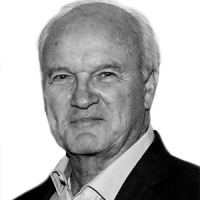Politics
Photo Illustration by Lyne Lucien/The Daily Beast
The Boston Neighborhood That Made John Kelly
Fate
On those long days when Kelly might wonder why he took the job, he will, no doubt, think of how he was raised on Bigelow Street in Brighton.
opinion

Trending Now





